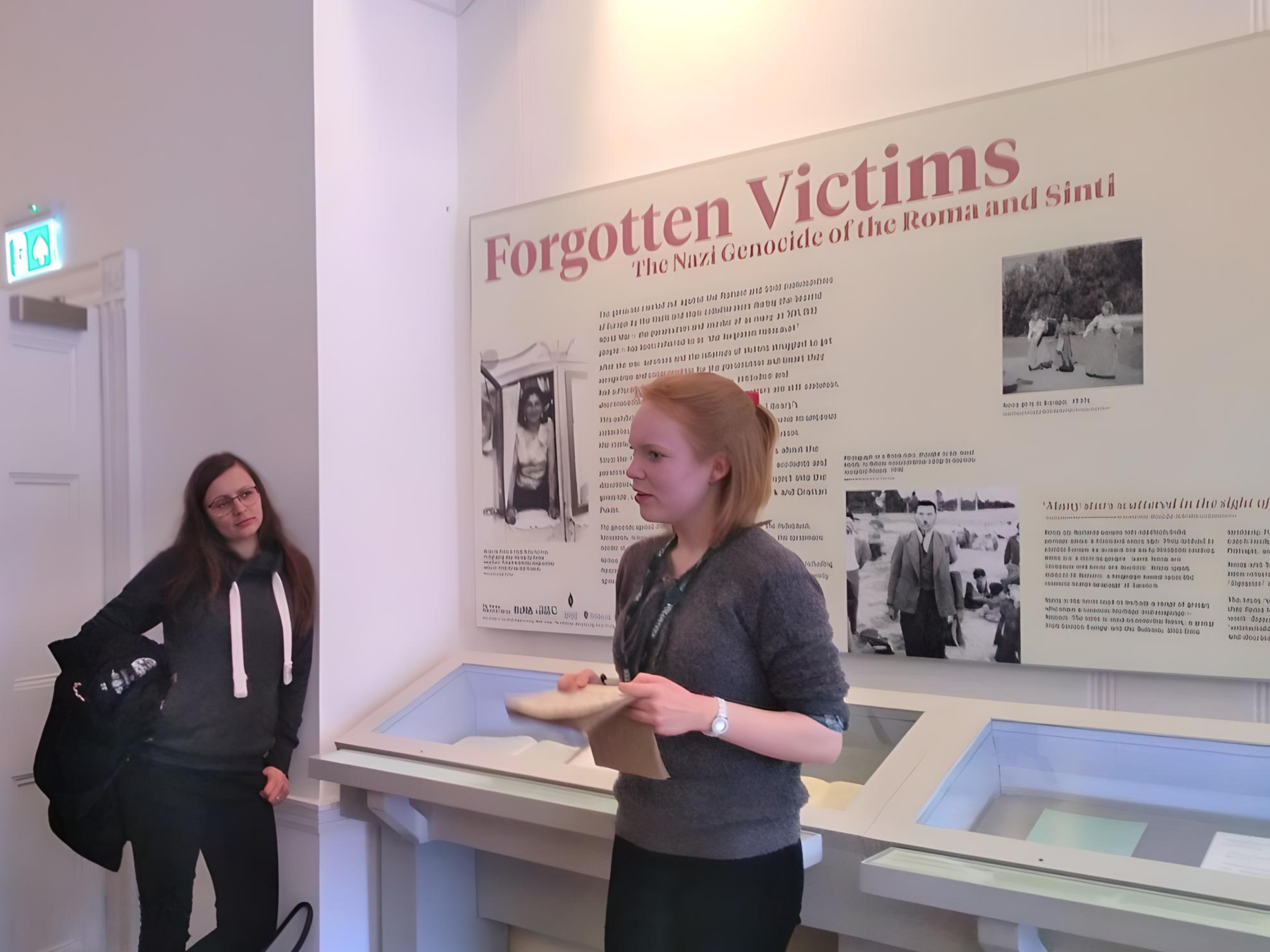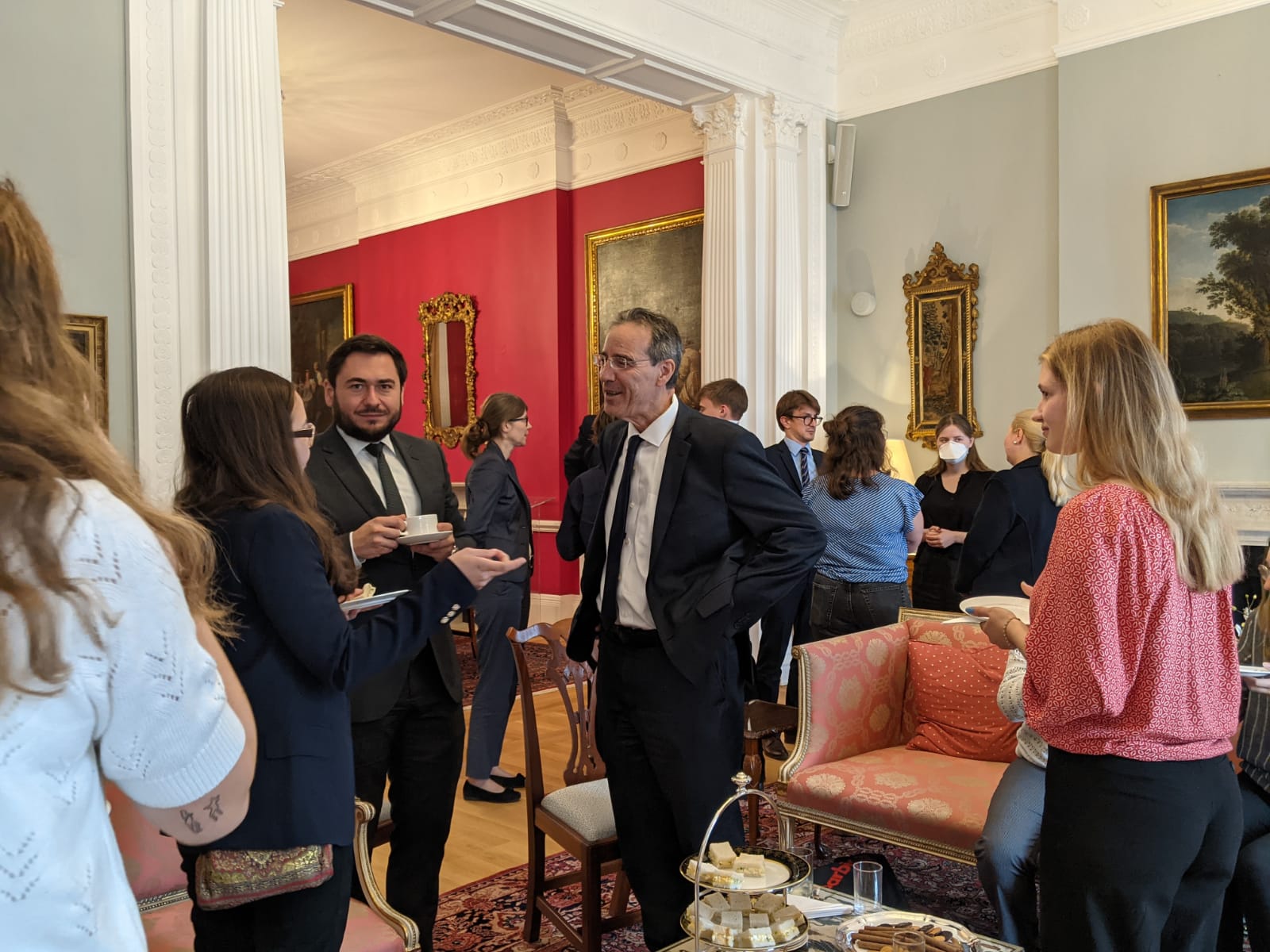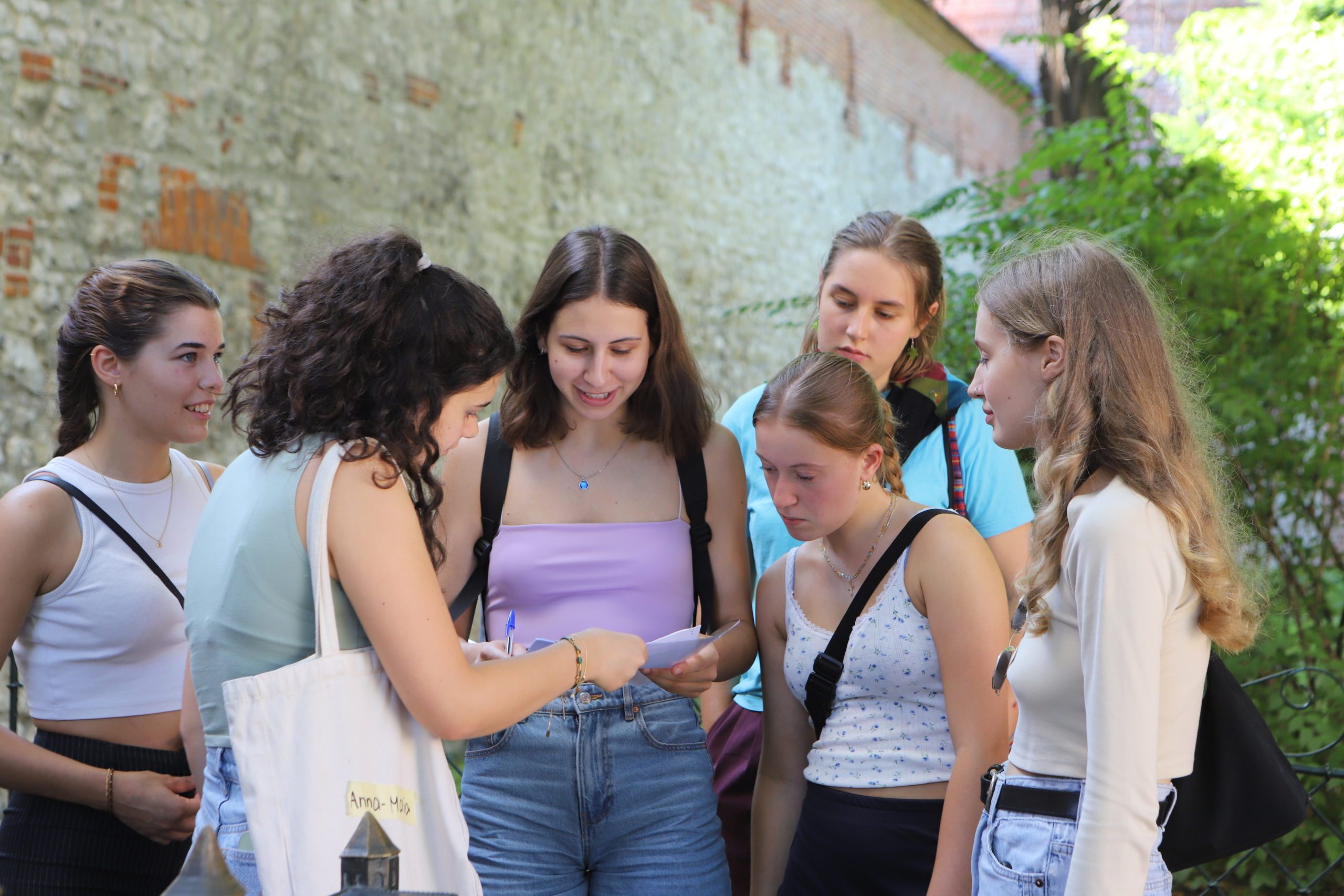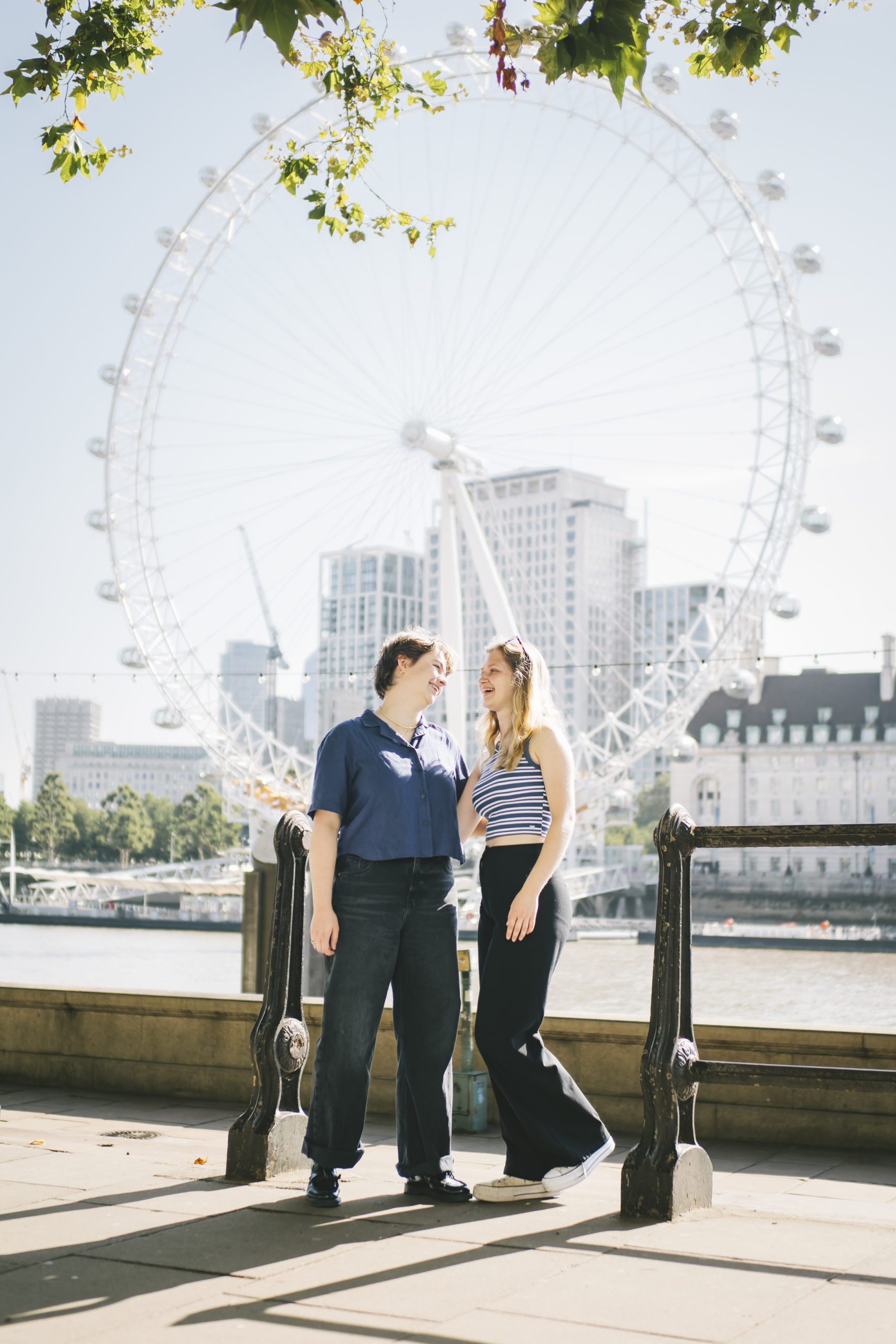About us
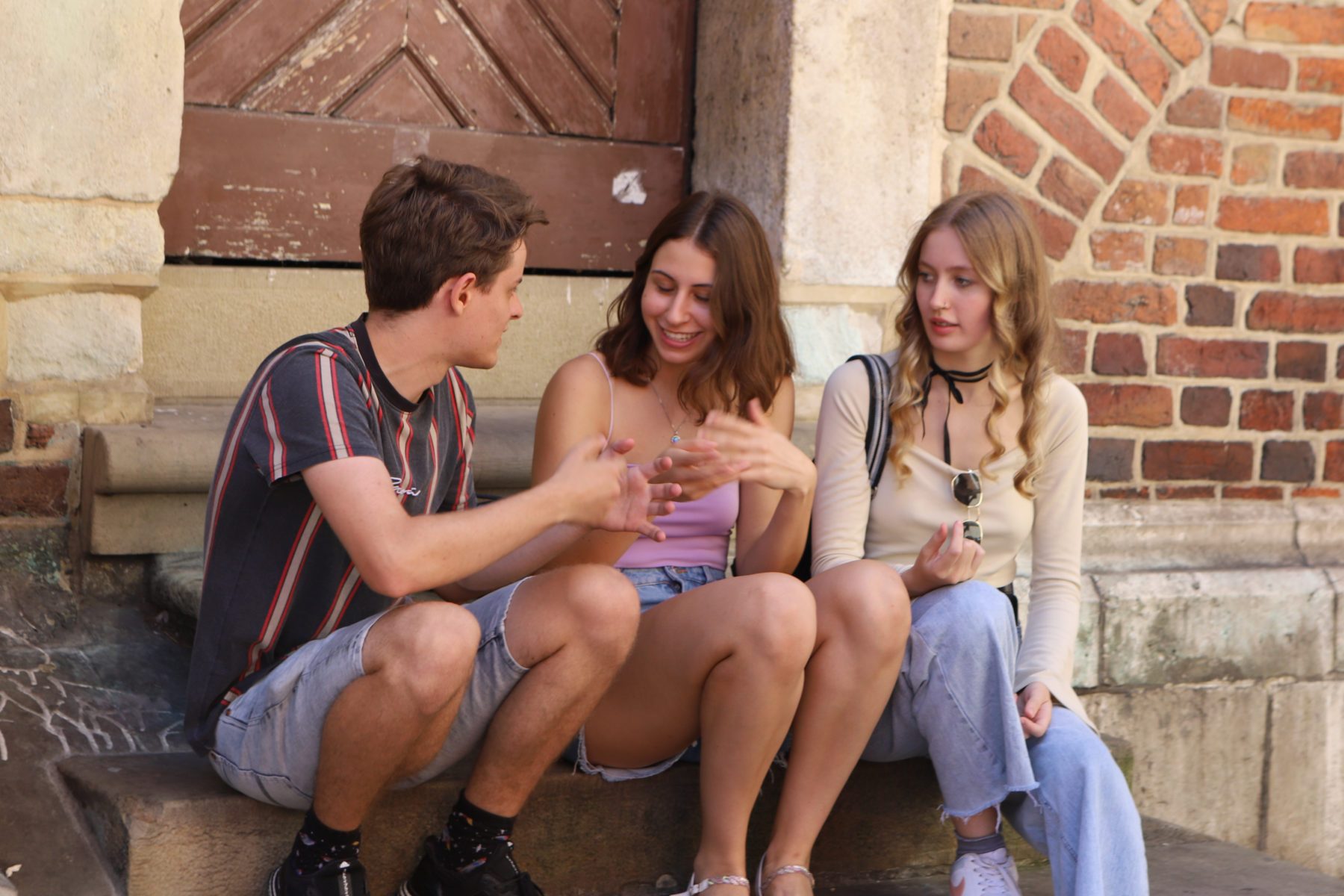
Experiencing history together and taking responsibility for the future. Setting concrete signs for remembrance, solidarity and peace through voluntary commitment and international cooperation. In Europe, the USA and Israel. This is ARSP.
On this page:
About ARSP
Action Reconciliation Service for Peace (ARSP) has been committed to remembrance, reconciliation and peace for over 60 years. The initiative was founded after the Second World War as a sign of conversion and concrete solidarity with the people and countries that suffered the unprecedented Nazi crimes. ARSP commemorates the persecuted and opposes current forms of anti-Semitism, racism, queerism and the exclusion of minorities.
Every year, ARSP sends around 160 volunteers to various European countries, Israel and the USA. They accompany survivors of the Shoah and Nazi forced labour, they support people with disabilities or work in memorial sites, museums and archives. In two-week summer camps, international groups also volunteer for specific projects, such as maintaining Jewish cemeteries or research at memorial sites.
This commitment is only possible thanks to the support of partner organisations in our host countries: Jewish communities, churches, museums and
memorial sites as well as social and educational projects. ARSP is represented in most partner countries by a permanent member of staff and a country office.
ARSP understands voluntary services to be peace services: In close cooperation with partner organisations, a path opens up for understanding and dialogue. The voluntary services make a small but concrete contribution to human rights and solidarity.
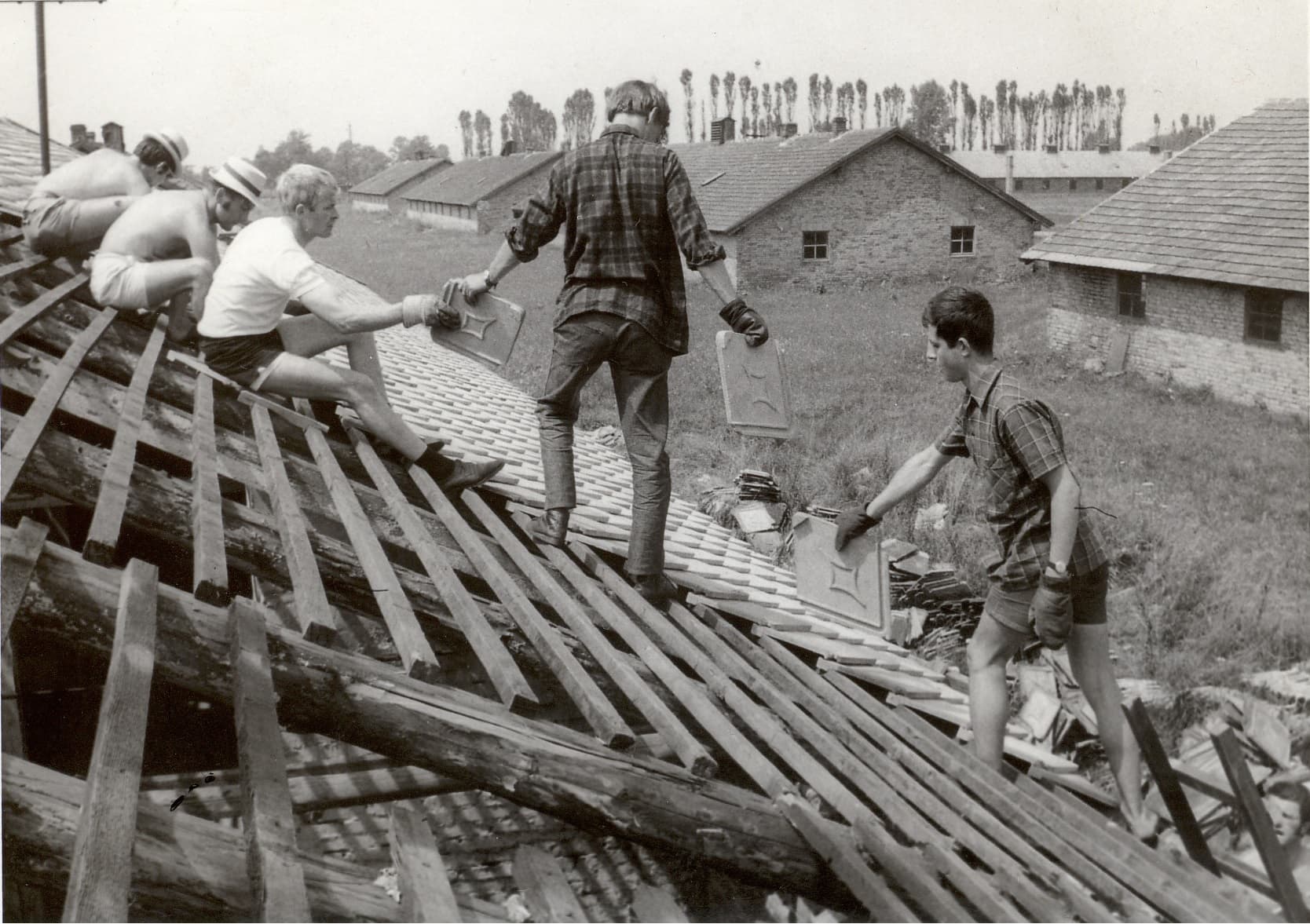
ARSP in the UK
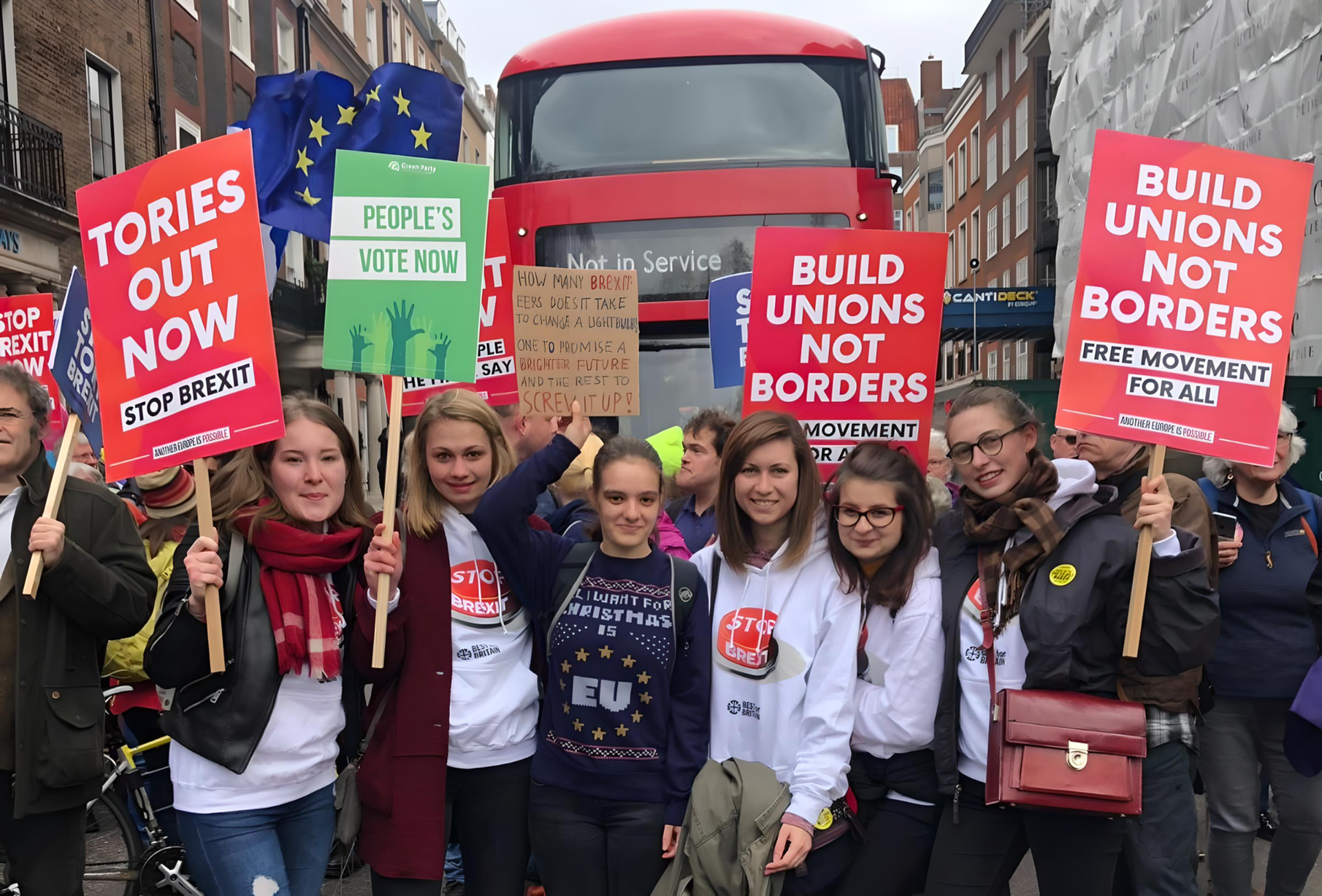
Britain differs from many of the countries ARSP works in due to the fact that there are fewer physical remainders of the horrors of the Nazi past. Towns and cities do not have concentration camp memorial sites that the public can visit on a daily basis or monuments to victims of the death marches or the numerous minority groups persecuted by the Nazis. In comparison to Germany there are far fewer services throughout the year commemorating the victims of Nazism, because in many cases events such as the Reichspogromnacht (Night of the Broken Glass) simply did not occur on British soil. Memorialisation, discussion and remembrance of the Nazi past is arguably far less pronounced in the UK and it could therefore be argued that due to the lack of tangible remainders of the Nazi past the work carried out by ARSP is essentially irrelevant.
After all, volunteers in countries such as Germany, Poland and Russia often spend significant amounts of time working at memorial sites and caring for Holocaust survivors, facilitating modern day forms of reconciliation that are often not possible in the UK. Whilst project work in the UK has a slightly different focus the effects and consequences of the Second World War are far more prevalent than would initially appear. Nearly every village or town has a memorial to fallen soldiers, whilst London is full of monuments commemorating particular events or influential decision makers. Furthermore the effects of the Holocaust were also keenly felt in Britain, due to the Kindertransports and the arrival of Jewish refugees who emigrated here following Hitler’s rise to power and before the outbreak of war in September 1939. This led to the foundation of organisations such as the Association of Jewish Refugees (AJR) which today still actively raises awareness on issues surrounding forced migration and is currently an ARSP project partner. The legacy of the Nazi past therefore retains significance as it links into contemporary life. Although the interpretation of this past differs from country to country it is clear that shared lessons can be applied to present day societies throughout Europe and the world; Acknowledging and understanding the impact of the past to ensure repetition does not occur, upholding democratic structures to create a fair and just world and respect and tolerance for every human being, irrespective of their skin colour, religion, sexual orientation, personal beliefs and political attitudes are all lessons that can be drawn from confronting and examining the consequences of National Socialism. They are also values and ideas continuously promoted by ARSP in all our project work in the UK, ensuring the organisation remains as relevant now as it did following its foundation in the UK in 1961.
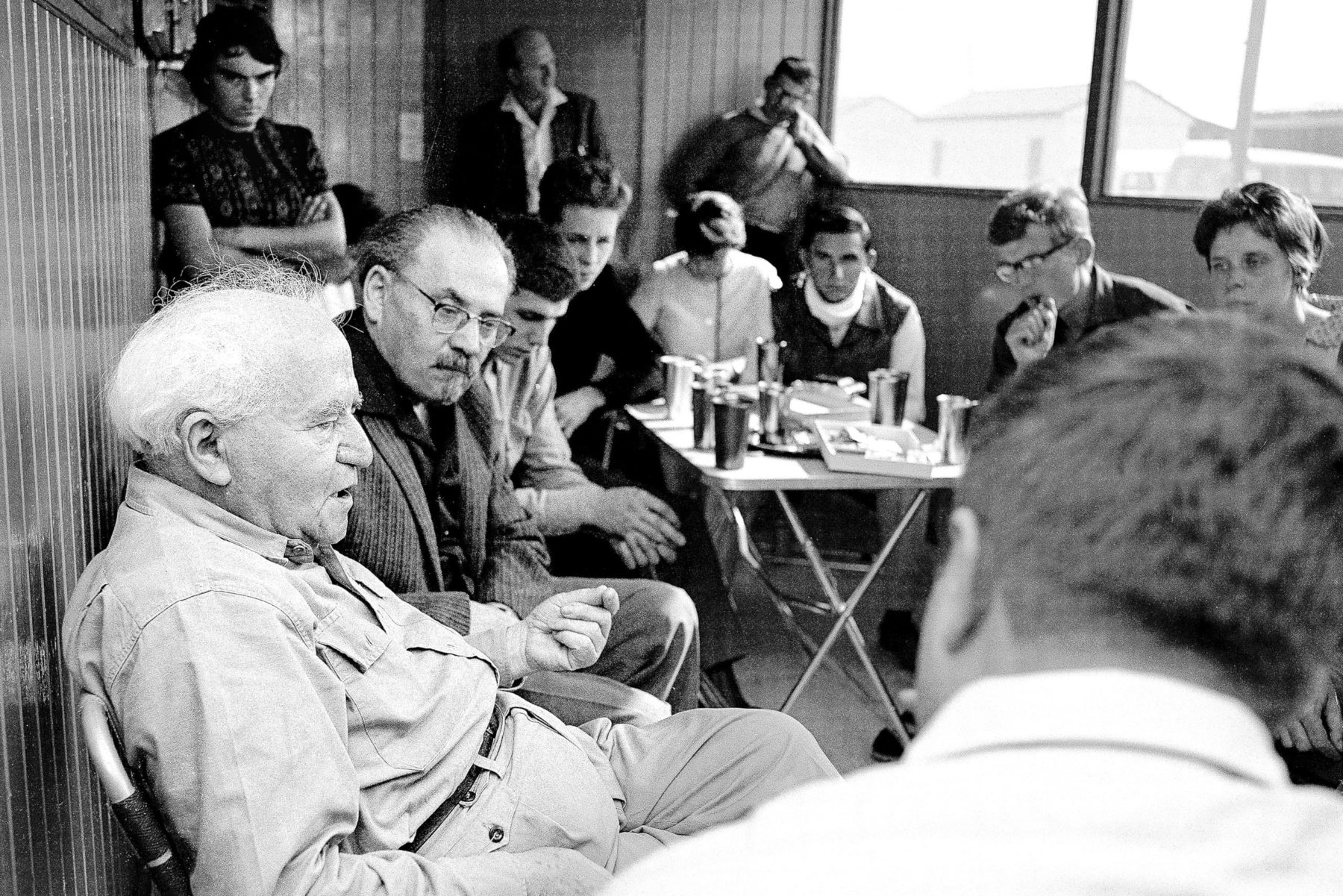
The first ARSP volunteers came to Coventry in 1961 where they helped to rebuild Coventry Cathedral. Since 2001 ARSP has been running a trilateral programme with volunteers from Poland and Germany.
Aktion Suehnezeichen Friedensdienste (ASF) was founded in 1958 by Lother Kreyssig, a member of Dietrich Bonhoeffer’s Confessing Church (Bekennende Kirche). In 1958 Kreyssig stated “We Germans began World War II and for this reason alone we are guilty for bringing immeasurable suffering to humankind. (…..) There has not been true reconciliation. We are requesting all peoples who suffered violence at our hands to allow us to perform good deeds in their countries. (…..) to carry out this symbol of reconciliation”.
Under these auspices ARSP was first established in the UK in 1961 as Action Reconciliation Service for Peace (ARSP), establishing a dialogue and exchange that continues today. ARSP initially began work at Coventry cathedral, one of the most emotive symbols of British suffering during the Blitz. Sixteen young German volunteers, predominantly from Berlin, began to build an international meeting centre for reconciliation in the ruins of the cathedral. This marked the start of a long, productive association.
In 1963 a group of young British volunteers went to Dresden, in East Germany, to help rebuild a hospital destroyed during the Allied bombing onslaught of February 1945. Hardy Kluge, former co-ordinator of ARSP in the UK described these early exchanges as ‘the first efforts of young people to produce symbols of reconciliation, to pave the way towards a better mutual understanding and, thus to a more beautiful world’. Between 1961 and 1996 more than 600 young Germans worked as ARSP volunteers in the UK, primarily in five British regions, which were socially and economically deprived. Volunteers worked at projects throughout London, at the Corry Meela reconciliation centre in Northern Ireland and built a social centre in Glasgow, amongst others. Until 1986 ARSP sent twenty-five volunteers every eighteen months, however after this point and despite many significant achievements, ARSP’s presence in the UK began to drastically decline. This can be attributed to financial problems – on the one hand caused by cuts in the British social service budget and their effects on ARSP’s partner projects, on the other hand due to major financial difficulties experienced by ARSP as an organisation. Work in the UK was initially reduced and then almost completely closed down. From the early 1990s ARSP began to rebuild a stable project partner network. This culminated with the introduction of ARSP’s first Trilateral Programme in 2001. Volunteers are currently active in London, the Midlands and in Devon. ARSP aims to continue to grow the programme and we are always interested to hear from potential project partners.
Our Partners
ARSP’s work is only possible thanks to our partner organisations. We have been working with many of our partners for many years – on the basis of equal cooperation. We exchange ideas regularly – international cooperation enriches us a lot. Our volunteers have permanent voluntary placements and contact persons in their host organisations.
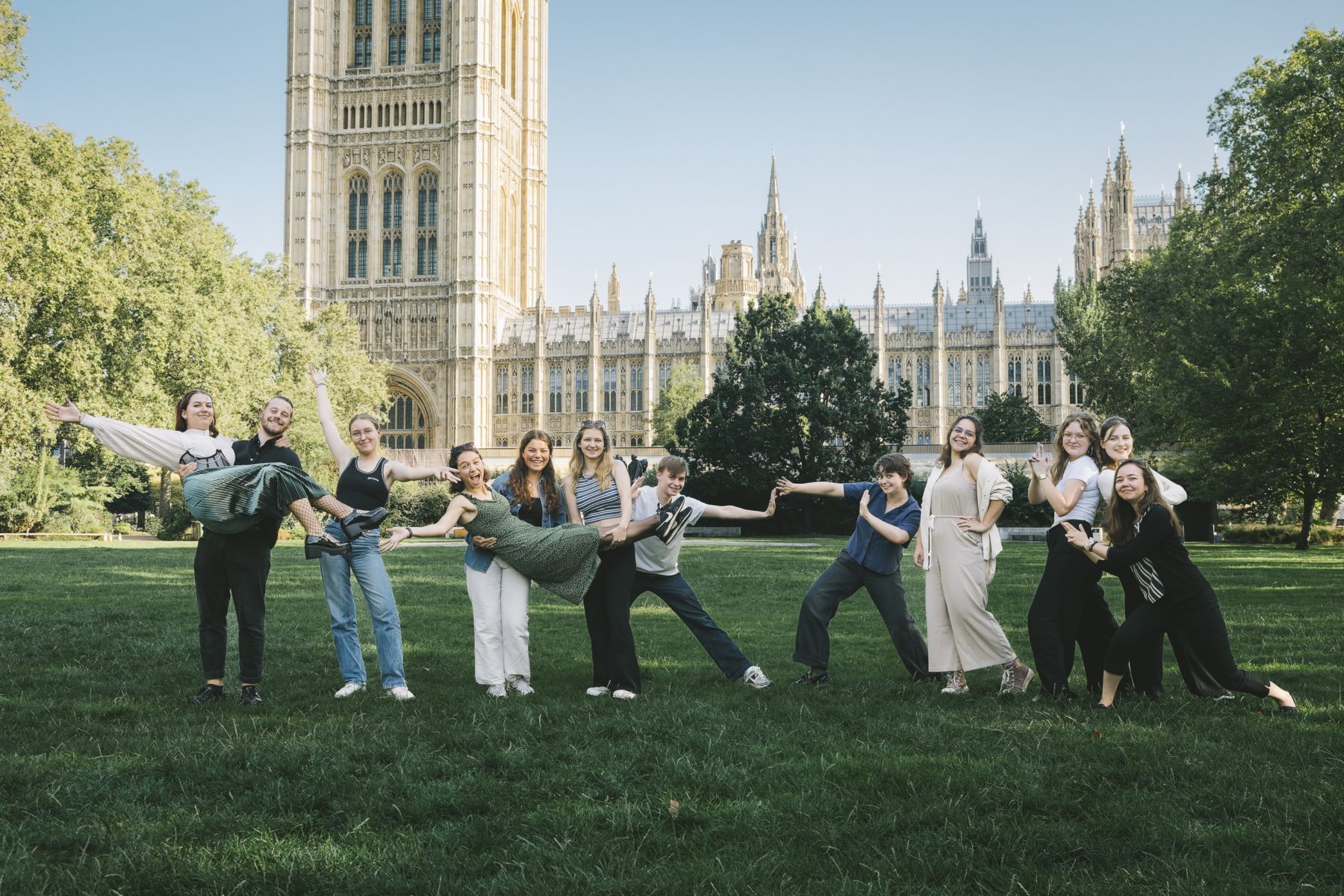
Current projects
Over the years ARSP has sought to acquire project partners who reflect our values and aims. We work closely with our partners to ensure our volunteers can enjoy and make the most of their Voluntary Service.
Association of Jewish Refugees – London – is an organisation assisting and representing Jewish victims of National Socialist persecution who emigrated to the UK after 1933.
Coventry Cathedral – Coventry – provides practical support for local, national and international communities through the Ministry of Reconciliation.
Leo Baeck Institute – London – is a research institute recording the history and culture of German-speaking Jewry throughout Central Europe.
Pursuing Independent Paths – London – offers a flexible and dynamic range of services, including a full range of training and education, to young people with a range of learning disabilities.
Roma Support Group – London – aims to improve the quality of life for Roma refugees as well as raising awareness in society of the discrimination and problems faced by Roma people.
South London Refugee Association – London – is a front line community organisation providing support to refugees, asylum seekers and other migrants who are at risk or in crisis because of past trauma or restrictions related to their immigration status.
Southwark Day Centre for Asylums Seekers – London – supports asylum seekers and refugees. The SDCAS runs three day centres in South London and provides legal advice, health advice and language classes as well as a social space for people in need.
The Jewish Museum London- London – a museum for people of all backgrounds and faiths that encourages creativity and discovery in the exploration of British Jewish heritage, identity and culture.
Wiener Holocaust Library – London – the internationally renowned Wiener Holocaust Library holds the largest Holocaust archive in the UK.
YMCA Exeter – Exeter – provide a range of supportive services. They offer housing, work with people with emotional and mental health difficulties and run a youth work and community initiatives.
The German YMCA – London – offers a variety of cultural and leisure-time activities, advice, support and help for the German-speaking community, their international friends and the local community.
